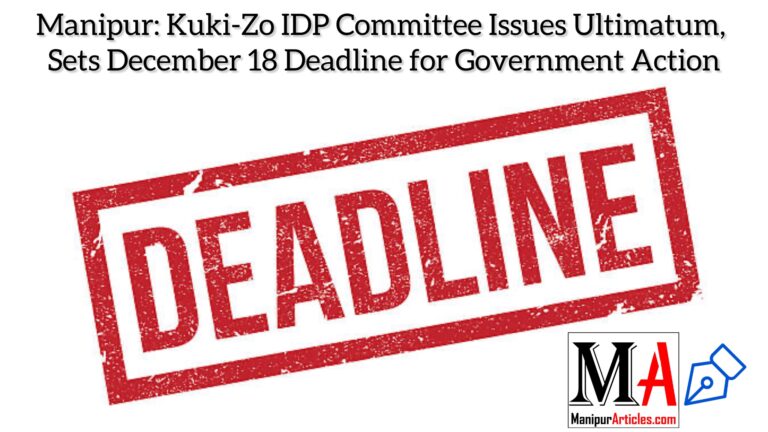Manipur Crisis: Joint Action Committees (JACs) Prepare Burial for Nine Jiribam Victims Amid Ongoing Tensions
Summary
In the aftermath of the tragic killings in Jiribam, Manipur’s Joint Action Committees (JACs) have resolved to hold a burial ceremony for nine victims at Ningsing Khun. This decision follows escalating tensions and demands for justice, highlighting the unrest caused by recent violent events. The tragedy has intensified calls for investigations and measures to address long-standing socio-political grievances in the region【65】【66】.
Understanding the Crisis in Manipur
The Jiribam Tragedy: What Happened?
Manipur recently witnessed one of its most shocking incidents—the abduction and brutal killing of nine individuals, including women and children, in Jiribam district. The victims were discovered in the Barak River, sending shockwaves across the state. The Joint Action Committees, representing various community and civil organizations, have now decided to organize a mass burial at Ningsing Khun as a symbolic gesture of mourning and solidarity【65】【66】.
Community Reactions and Protest Movements
The tragedy has sparked widespread protests. Iconic locations like the Khwairamband Ima Keithel, Asia’s largest all-women market, have become the epicenters of demonstrations. Protesters not only condemned the killings but also voiced strong opposition to the re-imposition of the Armed Forces Special Powers Act (AFSPA) in certain districts. The public perceives AFSPA as a draconian measure that exacerbates fear and mistrust among citizens【66】.
Curfews and Government Interventions
To prevent further unrest, curfews were imposed in Jiribam and surrounding areas. Prohibitory orders banned large gatherings and the carrying of weapons to maintain law and order. While these measures aim to restore peace, many view them as temporary fixes to deeper societal and governance issues【66】.
The Role of JACs in Crisis Management
The JACs play a pivotal role in addressing community grievances during such crises. By advocating for justice and organizing symbolic events like the burial, they bring public attention to the need for systemic change. Their actions often lead to broader discussions about reconciliation and governance reforms in conflict zones like Manipur【65】.
Broader Implications
This tragic incident is not isolated but part of ongoing tensions in the state, stemming from ethnic conflicts, governance challenges, and socio-political alienation. The re-imposition of AFSPA adds another layer of complexity, raising questions about its effectiveness in ensuring security versus its impact on civil liberties【66】.
FAQs
- Why did the JACs choose Ningsing Khun for the burial? Ningsing Khun holds cultural significance and serves as a neutral ground for a collective expression of grief and solidarity.
- What sparked the protests in Manipur recently? The protests were driven by outrage over the abduction and killing of nine individuals in Jiribam, coupled with opposition to the re-imposition of AFSPA.
- How has the government responded to the Jiribam killings? The government has imposed curfews, issued prohibitory orders, and initiated investigations to address the crisis.
- What is AFSPA, and why is it controversial? AFSPA grants special powers to the armed forces in disturbed areas. Critics argue it leads to human rights violations and undermines public trust.
- What role do JACs play in Manipur’s socio-political landscape? JACs act as community representatives, advocating for justice and mobilizing collective action during crises.


